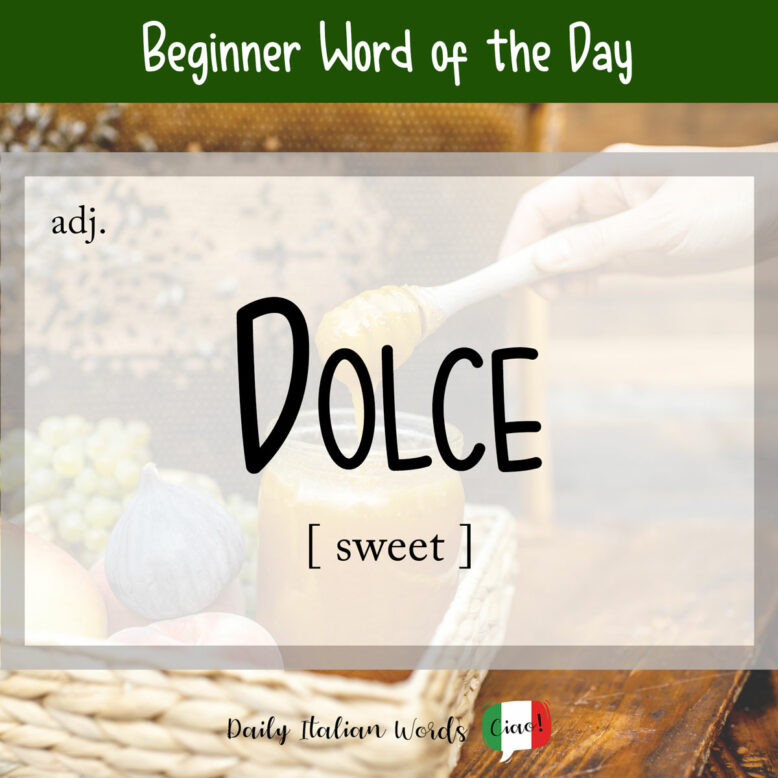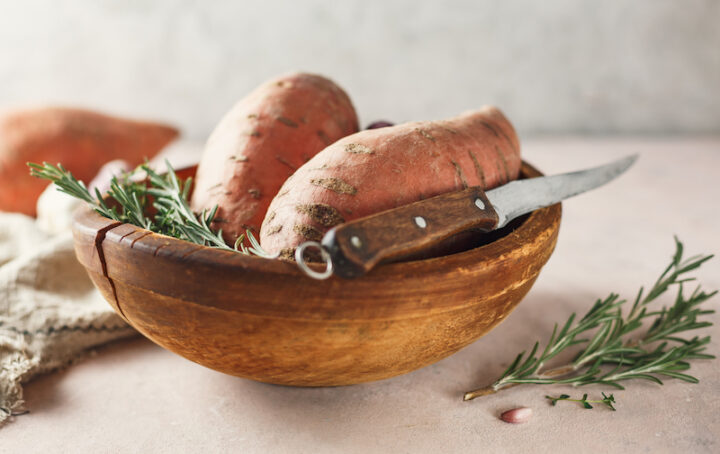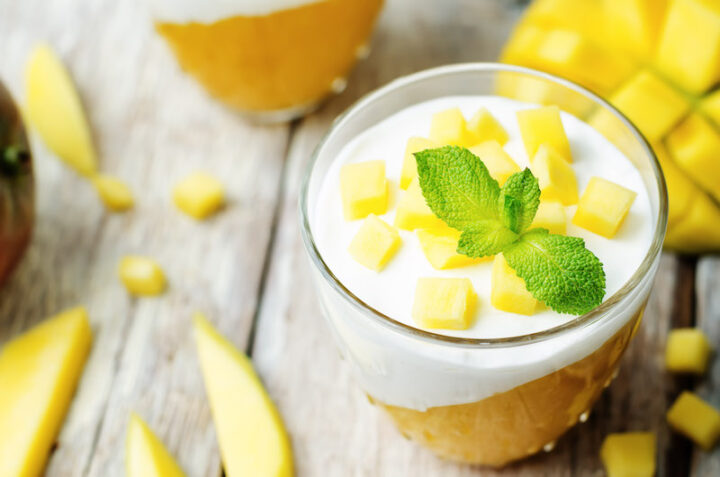If you have a soft spot for sugary foods like chocolate, cakes and candy, an adjective you should add to your Italian lexicon right away is dolce, which means sweet.

Learn with our video
‘Dolce’ as an adjective
Dolce is one of those adjectives whose form only changes for the plural, not for the gender. For example:
- un lampone dolce = a sweet raspberry (masculine, singular)
- una torta dolce = a sweet cake (feminine, singular)
- dei lamponi dolci = sweet raspberries (masculine, plural)
- delle torte dolci = sweet cakes (feminine, plural)
It can refer to food or drink that is naturally sweet like fruit (frutta), that has been sweetened like coffee (caffè), is sweeter than other food or drink of its kind like a dessert wine (vino), or has a mild flavour like cream cheese (formaggio).
Non mi piace il caffè che fa Maurizio. È troppo dolce.
I don’t like the coffee Maurizio makes. It’s too sweet.

Just like the English word sweet, dolce has various figurative meanings, all of which denote something pleasant or agreeable.
For example, you can use dolce to describe the various facets of a person including their personality, temperament, actions or physical appearance.
- un sorriso dolce = a sweet smile
- un viso dolce = a sweet face
- un carattere dolce = a sweet character
- un gesto dolce = a sweet gesture

It can denote kind thoughts and feelings, as well as pleasant sounds, smells and memories.
Mi hai portato un regalo? Grazie mille! Che pensiero dolce!
You brought me a present? Thanks so much! What a sweet thought!
La melodia, dolce e rasserenante, ha aiutato il bambino ad addormentarsi.
The sweet and soothing melody helped the baby fall asleep.
When used to talk about the temperature or climate of a location, dolce means mild or temperate (un clima dolce = a mild climate). It can also mean malleable in reference to metals or gentle when talking about the steepness of a slope or a breeze.
Whereas hard water is quite literally called acqua dura, soft water is known as acqua dolce (lit: sweet water) in Italian. The expression marinaio d’acqua dolce refers to an inexperienced person.
Dolce also assumes the meaning alternative when referring to medicine (medicina dolce = alternative medicine).
‘Dolce’ the noun
In addition to being an adjective, dolce is also a masculine noun that means dessert. Although people will occasionally use the word dessert, dolce tends to be more common.
Vogliamo ordinare un dolce? – Certo, c’è sempre spazio per un dolce!
Do we want to order a dessert? – Of course, there is always room for dessert!

Another meaning for the noun dolce is sweet taste or sweetness, in which case it is preceded by the determiner il (the). You’ll see it used in this way in the phrase il dolce far niente (the sweetness of doing nothing), popularised by the film Eat Pray Love.
You may hear the diminutives dolcino or dolcetto, which both mean small cake or small pastry. The latter is also the name of a famous black Italian wine grape variety widely grown in the Piemonte region. Dolcetto also appears in the Halloween expression Dolcetto o scherzetto! (Trick or treat!)
Some common words and expressions in which dolce makes an appearance include:
- casa dolce casa = home sweet home
- la dolce vita = the sweet life
- la mia dolce metà = my other (better) half
- essere in dolce attesa = to be pregnant
- essere al dolce = to just be finishing (a meal)
- ghiotto di dolci = sweet tooth
This article is also available in video format on our YouTube channel. The audio version can be found on Podbean, Google Podcast, Apple Podcast and Spotify.
Heather Broster is a graduate with honours in linguistics from the University of Western Ontario. She is an aspiring polyglot, proficient in English and Italian, as well as Japanese, Welsh, and French to varying degrees of fluency. Originally from Toronto, Heather has resided in various countries, notably Italy for a period of six years. Her primary focus lies in the fields of language acquisition, education, and bilingual instruction.


